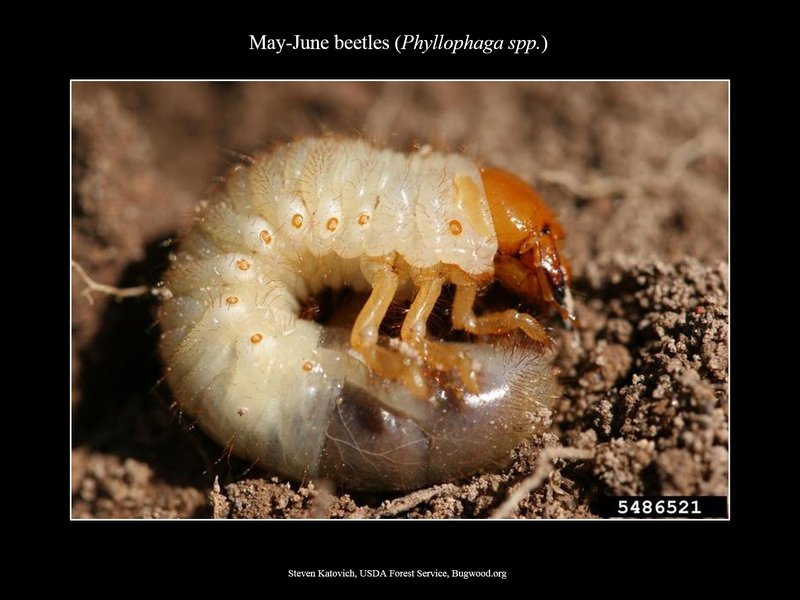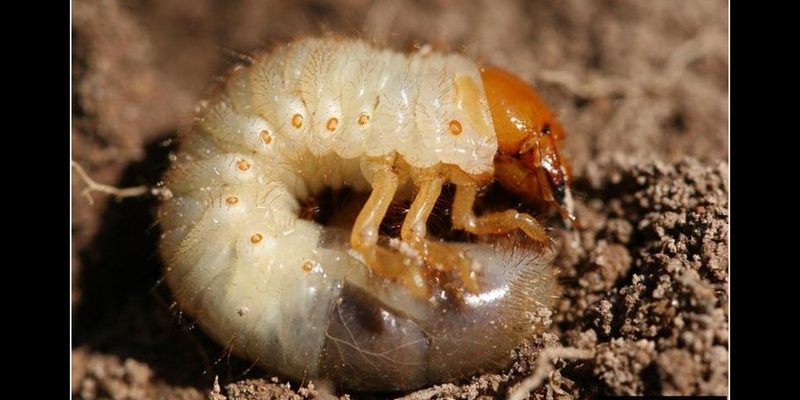
Imagine your garden as a community, where every member plays a role. When you add fertilizers, it’s like throwing a big party—certain guests (like grub worms) might show up, especially if the invitation is enticing enough. So let’s dig a little deeper into how grub worms interact with different fertilizers and what you can do about it.
What Are Grub Worms?
Grub worms are the larval stage of various beetles, with *Japanese beetles* and *May/June beetles* being the most common culprits. These soft-bodied worms can wreak havoc in your garden as they feast on grass roots, other plant roots, and organic matter in the soil.
You might find them in your lawn, garden, or even potted plants. They’re usually white or cream-colored and can be about an inch long. If you’ve noticed patches of dead or dying grass, it could be a sign of grub infestation. They’re like uninvited guests at your garden party, munching away without a care in the world!
How Do Fertilizers Affect Grub Worms?
Fertilizers can impact grub worms in a couple of ways. Firstly, they can create a healthier environment for your plants, which in turn can help them resist pests. Healthy plants can often withstand some grub damage and continue to thrive.
However, here’s the catch: some fertilizers can attract grub worms. For example, fertilizers high in nitrogen can signal to these worms that there are delicious roots nearby. The more you feed your plants, the more enticing the soil becomes. Essentially, you’re setting the dinner table for these little pests!
Types of Fertilizers and Their Attraction
Let’s break down the major types of fertilizers and see how they interact with grub worms:
- Organic Fertilizers: These tend to be less attractive to grub worms because they release nutrients slowly and don’t leave a high-nitrogen residue. Examples include compost, manure, and bone meal.
- Chemical Fertilizers: Typically high in nitrogen, these can attract grub worms. They give your plants a quick nutrient boost but can lead to a grub worm buffet if overused.
- Slow-Release Fertilizers: These might strike a balance. They provide nutrients over time, making them less likely to attract grub worms compared to fast-acting chemical options.
By choosing your fertilizers wisely, you can limit the chances of inviting grub worms to your garden.
Signs of Grub Worm Attraction
You might be wondering how to tell if your fertilizers are attracting grub worms. Here are some common signs to look out for:
- Patchy Grass: If you notice dead or brown patches in your lawn, it could signal a grub worm issue.
- Increased Beetle Activity: If you see more adult beetles around your garden, it’s likely that their larvae are present as well.
- Soil Disturbance: Grub worms tend to churn up the soil as they feed, so loose or uneven ground might be a warning sign.
If you spot any of these signs, it’s time to take action!
Preventing Grub Worms with Fertilizers
So how can you use your choice of fertilizer to keep grub worms at bay? Here are some preventive measures:
- Limit High-Nitrogen Fertilizers: Instead of using fertilizers that are high in nitrogen, consider using slow-release or organic options.
- Apply Fertilizers at the Right Time: Timing can be crucial. Apply your fertilizer in the spring or early fall when plants need nutrients the most and grub worms are less active.
- Introduce Beneficial Nematodes: These microscopic worms can help control grub worm populations by infecting and killing them. Incorporating them into your garden can be a game changer.
Being mindful of your fertilizer choices can significantly reduce the likelihood of grub worm infestations.
Alternatives to Chemical Fertilizers
If you’re looking for ways to keep grub worms at bay while still nourishing your garden, consider these alternatives:
- Compost: Rich in nutrients, compost not only nourishes your plants but also improves soil structure and health.
- Mulching: Applying organic mulch can help retain soil moisture while also providing nutrients as it breaks down.
- Crop Rotation: Changing the types of plants you grow in a specific area can disrupt the life cycle of grub worms.
These natural methods can help keep your garden healthy and less appealing to pests.
Grub worms can be a pesky problem, but by understanding their attraction to certain fertilizers, you can take steps to protect your garden. By choosing the right type of fertilizer and applying it strategically, you can create a thriving environment for your plants while keeping those uninvited grub worm guests at bay.
So the next time you’re shopping for fertilizers, think of it as planning a party. You want to create a welcoming atmosphere for your plants, not a buffet for pests! Happy gardening!

